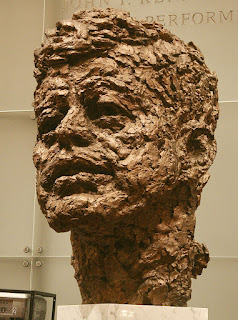What Congress named, Congress can rename.
As for whether renaming just the Opera House constitutes an actual "memorial," I don't know. Doesn't seem like it--I don't think of renaming an existing building as a memorial, I think of a memorial as being a thing, not an act of naming. And also since the building is to contain an actual memorial to JFK:
provide within the John F. Kennedy Center for the Performing Arts a suitable memorial in honor of the late President.
The memorial, I assume:

Then again, I find the language quirky. It would seem strange for the memorial to be required to contain the memorial, but that's what it could be argued to require. Then again, what do I know? Esp. since earlier the legislation states,
Whereas the living memorial to be named in his honor by this joint
resolution shall be the sole national monument to his memory within
the city of Washington and its environs
where the "living memorial" seems to be the Center itself.
But "providing" a memorial inside the JFK Center is completely permitted, if the right process is followed, although a memorial for what or for whom seems to be elided; the legalist in me wants something like "to any person, persons, event or events" to be clear ... Then again, this is legislation:
^^ ^ Board shall transmit to Congress a detailed report of any
memorial which it proposes to provide within the John F. Kennedy
Center for the Performing Arts under authority of paragraph (5) of
section 4 of this Act, and no such memorial shall be provided until the
Board of Regents of the Smithsonian Institution shall have approved
such memorial." [ italics are mine ]
Maybe the bust was such a sort of additional memorial ... or maybe the one that was stipulated. It would seem on its face that renaming the enter center would be fairly trivial, much easier than any wrangle over renaming just the Opera House. Depending on the text of the legislation proposed in the spending bill and what authority Congress has and what authority it's ceded to the Board of Regents of the Smithsonian.
I note that while Congress appoints that Board (by joint resolution or by president of the House and, separately, the Senate) and there are ex officio members, there is no provision in the bylaws for removal, for any reason. At best there's a reference to "vacancies occasioned ... otherwise." But they're indemnified, so that's okay, I guess.
I always find hybrid Legislative/Executive/Judicial entities to be a sort of three-way coupling of separate branches the offspring of which is necessarily triploid.
 = new reply since forum marked as read
= new reply since forum marked as read
